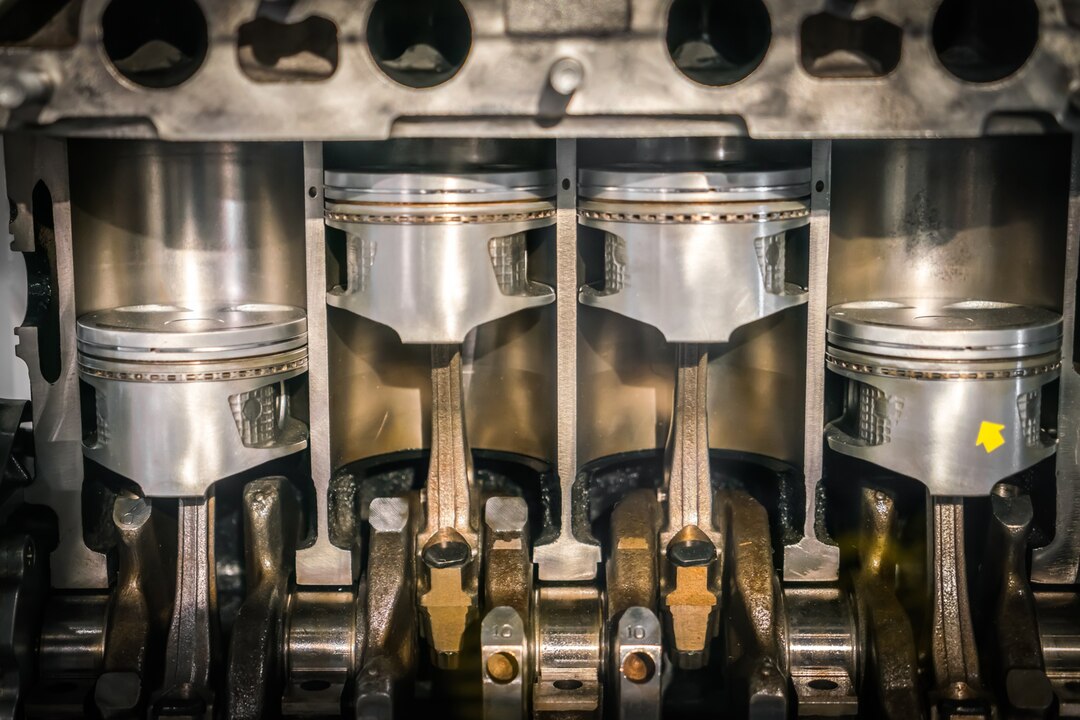The engine pistons are essential components of your car’s internal combustion engine, responsible for converting fuel into mechanical energy to power the vehicle. Over time, wear and tear or engine issues can affect the performance of the pistons, leading to various symptoms that indicate they may need replacement. Recognizing these signs early can help prevent further damage to your engine and ensure smooth and efficient operation. Here are 10 telltale signs that your car pistons may need to be changed:
- Decreased Engine Power:
One of the most noticeable signs of piston problems is a decrease in engine power or performance. If you find that your car struggles to accelerate, has reduced power output, or feels sluggish when driving, it could indicate issues with the pistons. - Engine Misfires:
Engine misfires occur when the fuel-air mixture fails to ignite properly in one or more cylinders. Faulty pistons can disrupt the combustion process, leading to misfires, rough idling, and noticeable vibrations while driving. - Excessive Oil Consumption:
Worn or damaged pistons can cause increased oil consumption as oil leaks past the piston rings into the combustion chamber. If you notice a sudden drop in oil levels between oil changes or see blue smoke coming from the exhaust, it may indicate piston ring wear or damage. - Knocking or Tapping Sounds:
Knocking or tapping noises coming from the engine are often a sign of piston slap, a condition where the piston moves excessively within the cylinder bore. This can occur due to worn piston skirts or insufficient piston-to-cylinder clearance, resulting in noisy engine operation. - Increased Exhaust Smoke:
If you observe an increase in exhaust smoke, particularly blue or gray smoke, it may indicate oil burning in the combustion chamber. Damaged pistons or piston rings can allow oil to enter the combustion chamber, resulting in excessive exhaust smoke. - Poor Fuel Economy:
Piston problems can contribute to decreased fuel efficiency as the engine struggles to maintain proper combustion. If you notice a significant drop in fuel economy or find yourself refueling more frequently than usual, it could be a sign of piston-related issues. - Engine Overheating:
Faulty pistons can disrupt the engine’s cooling process, leading to overheating issues. If your car’s temperature gauge consistently reads higher than normal or if you experience frequent overheating episodes, it’s essential to have the pistons inspected for potential problems. - Visible Damage or Wear:
During routine maintenance or inspection, visually inspecting the pistons for signs of damage or wear can provide valuable insights into their condition. Look for scuffing, scoring, or signs of heat damage on the piston skirts, crowns, or rings, indicating potential issues. - Loss of Compression:
A compression test can help diagnose piston problems by measuring the compression pressure in each cylinder. A significant loss of compression in one or more cylinders may indicate piston ring wear, piston-to-cylinder clearance issues, or other piston-related issues. - Check Engine Light:
Finally, if the check engine light illuminates on your dashboard, it could be a sign of various engine problems, including piston issues. Have the vehicle’s onboard diagnostic system scanned for trouble codes to pinpoint the exact cause of the problem.
The pistons are integral components of your car’s engine, and any issues with them can affect engine performance, fuel efficiency, and overall reliability. By being vigilant and recognizing the signs of piston problems early on, you can address issues promptly and avoid costly repairs down the line. If you experience any of the signs mentioned above, it’s crucial to have your car inspected by a qualified mechanic to determine if piston replacement is necessary for optimal engine health and performance.











